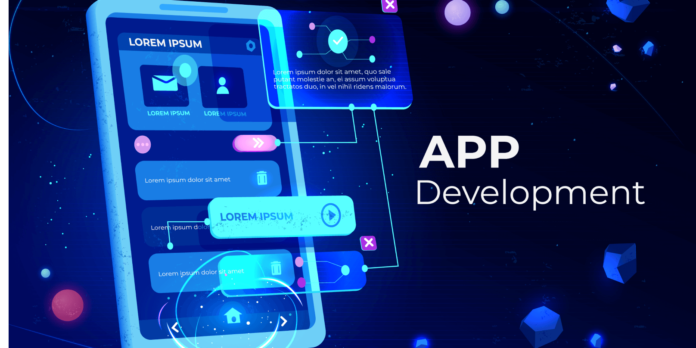Introduction
The app development market is a dynamic and ever-evolving landscape, driven by technological advancements, shifting user preferences, and emerging business needs. In recent years, the rapid adoption of smartphones, mobile internet, and cloud computing has fueled the growth of the app market, making it an indispensable part of our daily lives.
Technology plays a pivotal role in shaping the app development landscape. As new technologies emerge, app developers are constantly exploring innovative ways to integrate them into their creations. This has led to the development of sophisticated and user-centric apps that are transforming industries and redefining the way we interact with the world.
[Meta Introduces New AI Tools For Advertisers]
Key Trends Shaping the App Development Market
The app development market is characterized by several key trends that are shaping the future of mobile apps. These mobile marketing strategies or you can say the app development trends include:
The Rise of Artificial Intelligence (AI) and Machine Learning (ML)
AI and ML are revolutionizing the app development industry, enabling the creation of intelligent and personalized apps. AI is being used to develop chatbots, virtual assistants, and machine learning algorithms that can analyze data, make predictions, and provide personalized recommendations.
[AI in Digital Marketing: 10 Ways to Transform Your Business]
Augmented Reality (AR) and Virtual Reality (VR)
AR and VR are transforming the way we interact with the digital world, creating immersive and engaging experiences. AR apps are overlaying digital content in the real world, while VR apps transport users to virtual environments.
Internet of Things (IoT) and Wearables
The IoT is connecting devices and sensors, generating vast amounts of data that can be leveraged by apps to provide real-time insights and automate tasks. Wearables are also gaining traction, providing new opportunities for health and fitness apps.
Blockchain Technology
Blockchain technology is disrupting traditional industries, offering secure and decentralized solutions for data management and transactions. Blockchain apps are emerging in areas such as finance, supply chain management, and identity verification.
Cloud Computing and DevOps
Cloud computing is providing a scalable and cost-effective infrastructure for app development and deployment. DevOps practices are streamlining the development process, enabling faster and more efficient app delivery.
Progressive Web Apps (PWAs)
PWAs are blending the best of web and mobile apps, offering native-like experiences without the need for app installation. They are gaining popularity due to their ease of use, fast loading times, and offline capabilities.
Low-Code and No-Code Development Platforms
Low-code and no-code platforms are democratizing app development, enabling individuals with limited coding experience to create their own apps. This is empowering businesses to innovate and digitalize their processes without relying on traditional software development teams.
Emerging Technologies in App Development
Beyond the established trends, several emerging technologies are poised to make a significant impact on the app development market in the coming years. These technologies include:
Conversational AI and Chatbots
Conversational AI and chatbots are becoming increasingly sophisticated, enabling natural language interactions and providing personalized customer support. They are being integrated into various apps, including e-commerce, banking, and healthcare.
[AI Assistant Guide: Top 10 AI Assistants for Daily and Business Tasks]
Edge Computing
Edge computing is bringing computing resources closer to the end users, reducing latency and improving performance for real-time applications. This is particularly relevant for IoT apps and augmented reality experiences.
Cybersecurity and Data Privacy
As apps collect and process vast amounts of user data, cybersecurity and data privacy are becoming paramount concerns. Developers are implementing robust security measures to protect user data from unauthorized access and misuse.
Conclusion
The app development market is undergoing a period of rapid transformation, driven by the convergence of emerging technologies and the ever-increasing demand for innovative and personalized app experiences. App developers are adapting to these trends by embracing new technologies, such as AI, AR, VR, IoT, and blockchain, to create apps that are more intelligent, immersive, and connected than ever before.
In the future, we can expect to see even more sophisticated apps that seamlessly integrate various technologies to provide users with a unified experience. Personalized and predictive apps will become commonplace, offering tailored recommendations and services based on individual preferences and usage patterns.
As app development becomes more accessible through low-code and no-code platforms, we will witness a broader range of individuals and organizations creating apps to address their specific needs and challenges. This democratization of app development is empowering innovation and driving digital transformation across industries.
To navigate this dynamic and ever-evolving landscape, app developers need to stay abreast of the latest trends, embrace emerging technologies, and focus on creating user-centric experiences that address real-world problems. By doing so, they can play a crucial role in shaping the future of app development and driving innovation across the digital landscape.
Follow Pingtalks for more marketing updates



